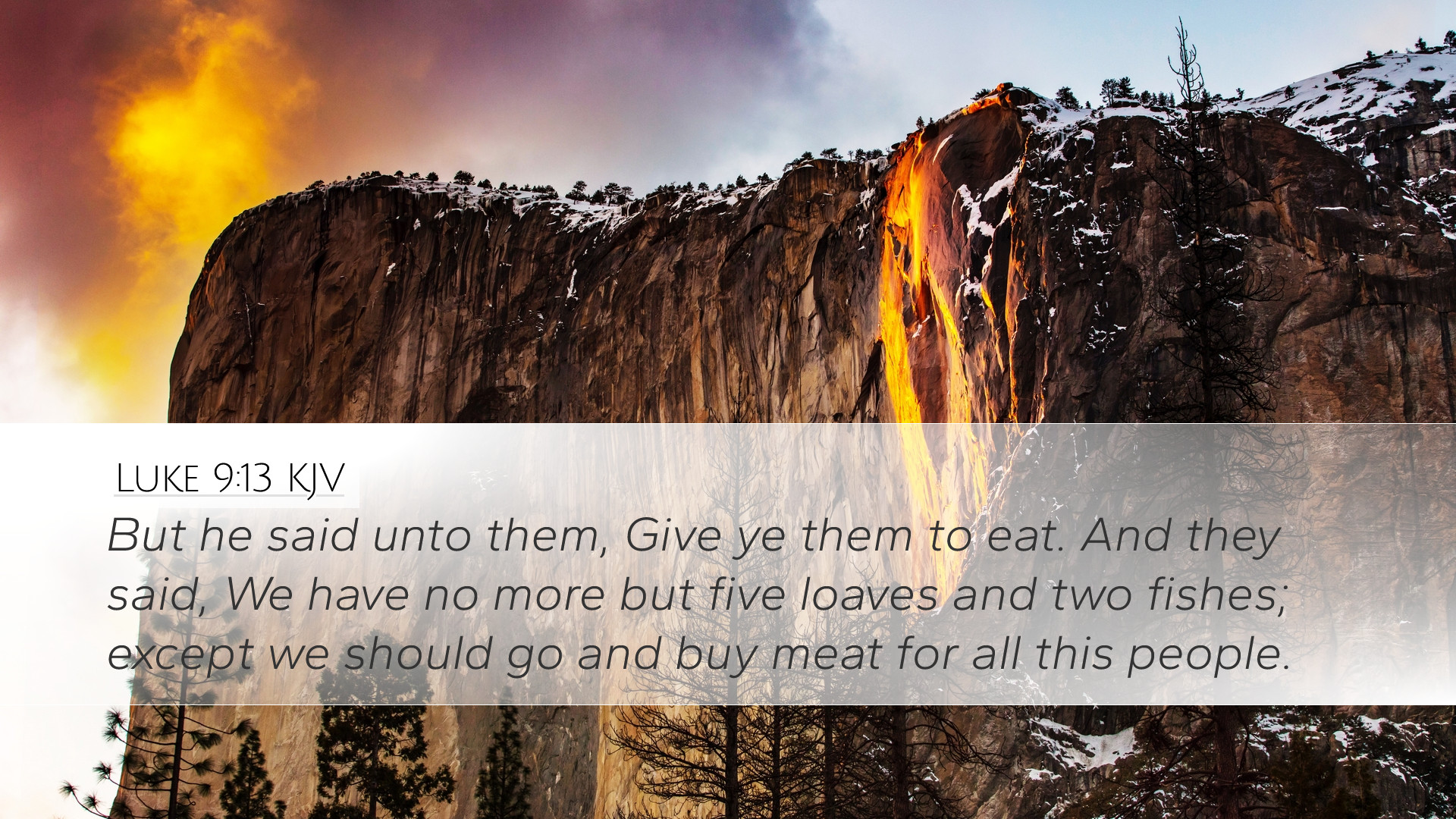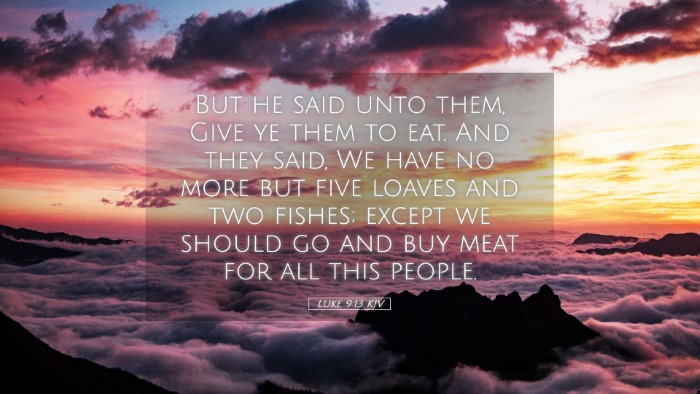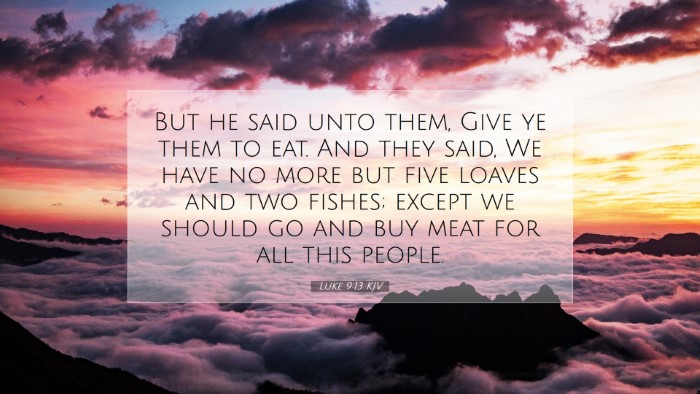Commentary on Luke 9:13
Luke 9:13 states, "But He said to them, 'You give them something to eat.' And they said, 'We have no more than five loaves and two fish, unless we go and buy food for all these people.'
Contextual Overview
This passage is part of the narrative where Jesus performs the miracle of feeding the five thousand. This event is significant as it reveals not only the compassionate nature of Christ but also showcases the disciples' initial doubt in their ability to meet the needs of the multitude.
Insights from Matthew Henry
Matthew Henry remarks on the necessity of examining the resources at hand. He emphasizes that when Jesus commanded His disciples to provide food for the people, it revealed their lack of faith and understanding of the miraculous provision God could offer. Henry notes:
- Spiritual Provision: The feeding of the multitude mirrors the spiritual sustenance that Christ offers, suggesting that physical needs often reflect deeper spiritual hunger.
- Human Limitation: The disciples’ response illustrates our human limitations and the tendency to focus on what we lack rather than what we have in Christ.
- Faith in Action: Jesus’ request encourages believers to act with the little they have, trusting in God to multiply their efforts for His kingdom.
Insights from Albert Barnes
Albert Barnes provides a detailed analysis of the text, focusing on the implications of Christ’s directive. He states:
- Responsibility of the Disciples: The command, "You give them something to eat," placed the responsibility squarely on the shoulders of the disciples, indicating that they were to be active participants in His ministry.
- Resource Awareness: Barnes highlights the limited resources available to the disciples, noting that their initial response reflects human inadequacy in the face of divine tasks.
- Encouragement to Serve: This incident encourages believers to bring forth whatever they have to the Lord, for it is through His power that even the smallest contributions can suffice for great needs.
Insights from Adam Clarke
Adam Clarke’s commentary elaborates on the logistics of the miracle and the deeper teachings within the verse:
- Practical Action: Clarke underscores that Jesus required practical involvement from the disciples, teaching that faith must be accompanied by action and initiative.
- Symbolism of Bread and Fish: The five loaves and two fish symbolize both the simplicity and the abundance of God’s provision; they are humble beginnings that can lead to miraculous outcomes.
- Teaching Moment: Clarke suggests that this moment serves as a critical teaching session for the disciples, instilling in them the truth that they need to learn to depend on Jesus alone for all needs – both spiritual and physical.
Theological Reflections
This passage invites profound theological reflection on several key themes:
- Divine Provision: It highlights the theme that God's provision often comes through the cooperation of His people, showcasing a model of faith-driven community involvement.
- Faithfulness in Scarcity: It challenges believers to be faithful with what they perceive as insufficient, reinforcing the truth that God’s economy operates on principles that transcend human understanding.
- The Nature of God's Kingdom: The act of feeding the multitude serves as a foreshadowing of Jesus' ultimate providing for humanity's spiritual needs through His sacrifice, reaffirming the Kingdom's inclusive nature.
Practical Application for Today’s Believers
For pastors, students, theologians, and scholars, Luke 9:13 extends several practical applications:
- Engagement in Ministry: Believers are called to be actively engaged in responding to the needs of those around them, learning to trust God with their available resources.
- Encouragement in Lack: This passage can serve as a source of encouragement in times of scarcity, reminding believers that God is able to multiply their efforts beyond their expectations.
- Community Involvement: As a community of believers, there is strength in coming together to meet needs, leading to transformation both individually and collectively.
Conclusion
In summary, the reflection on Luke 9:13 opens a doorway to understanding Christ's command as a clarion call for active faith, paired with the assurance of God's provision. As believers contend with their limitations, may they be reminded that the little they have, when brought to Jesus, can feed the multitudes.


